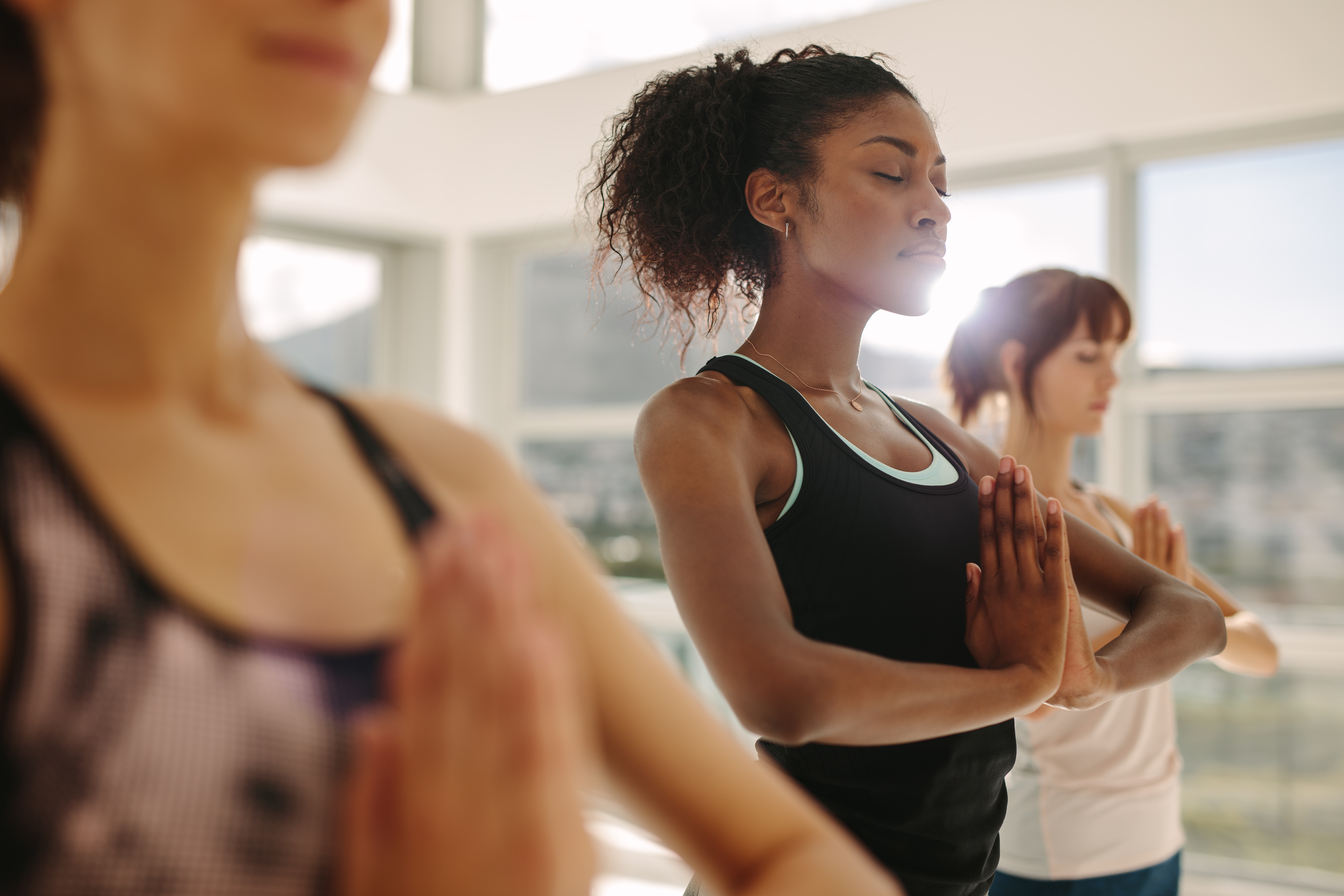The new year brings the promise of fresh starts and renewed optimism. Yet for many, January can be a difficult month. The excitement of the holidays has faded, and the long winter months stretch ahead. If you find yourself feeling down or unmotivated, you’re not alone. The good news is there are some simple self-care strategies you can employ to boost your mood and start the year off right. By incorporating some of these tips into your daily routine, you can overcome the January blues and set yourself up for a happier, healthier year ahead. The path to improved well-being begins with you. With compassion for yourself and a commitment to self-care, you have the power to shift your mindset and brighten your days during this season.
Understand the January Blues
The January blues, also known as seasonal affective disorder (SAD), are a type of depression related to shorter days and lack of sunlight in winter. During January, as the excitement of the holidays fades, the long nights and cold weather can negatively impact your mood and motivation.
To overcome the January blues, it’s important to first understand the underlying causes. Lack of natural light disrupts your circadian rhythm and decreases serotonin levels, a mood-regulating neurotransmitter. Establishing a consistent sleep-wake cycle, spending time outside during the day, and using a light therapy device can help regulate your circadian rhythm.
It’s also common to feel a lack of purpose or direction after the holidays. Start setting small, achievable goals to build motivation and a sense of progress. Connecting with others who share your interests or values can combat feelings of isolation or loneliness. Join an online community or start a meetup group to make new friends.
Don’t forget self-care. Exercise releases endorphins that improve your mood and act as natural antidepressants. Even light activities like walking, yoga, or strength training a few times a week can help. Eat a healthy, balanced diet with plenty of nutrients. Limit alcohol and caffeine intake which can worsen symptoms of depression or anxiety.
The January blues are often temporary, but that doesn’t make them any less difficult to deal with. By understanding the causes, maintaining a routine, setting small goals, connecting with others, and practicing self-care you can boost your mood and motivation to beat the January blues.
 Beat the Blues With Daily Sunlight and Exercise
Beat the Blues With Daily Sunlight and Exercise
Exposure to natural light helps regulate your circadian rhythm and mood. Aim for at least 30 minutes of direct sunlight per day. Open the blinds, go for a walk outside during your lunch break, or spend time in your yard. If natural light is limited, consider using a light therapy box.
In addition to light, exercise is a natural mood booster. Engage in at least 30 minutes of moderate physical activity most days of the week. Some options include:
- Going for a brisk walk. Walking provides an easy way to get outside during winter, elevate your heart rate, and boost endorphins.
- Doing an at-home workout. Options like yoga, strength training, or high-intensity interval training require no equipment and can be done anywhere. Look for workout videos on YouTube to follow along.
- Trying a new fitness hobby. Take a dance, rock climbing, or martial arts class. Learning a new skill will challenge you physically and mentally, shifting your mind from the blues.
While easier said than done when you’re feeling down, eating a balanced diet with plenty of nutrients and staying hydrated also help support mood and motivation. Limit excess sugar, alcohol, and caffeine which can worsen symptoms of depression or anxiety.
Getting quality sleep, limiting screen time before bed, and maintaining a consistent sleep-wake schedule are additional ways to nurture your well-being during winter. Aim for 7 to 9 hours of sleep per night to allow your body and mind to rest.
With conscious effort and self-care, you can overcome feelings of sadness or being stuck in a rut. Make the most of available daylight, move your body, nourish yourself well, get adequate rest, and connect with others. Happiness comes from within, so be gentle with yourself and maintain an optimistic outlook. The winter will pass, and brighter days are ahead!
Eat Well and Get Plenty of Sleep
During the winter months, it can be easy to fall into unhealthy eating and sleeping habits. However, maintaining a balanced diet and regular sleep schedule is essential for your well-being, especially in January.
Focus on eating nutritious, home-cooked meals with plenty of fruits and vegetables, whole grains, and lean proteins. Limit excess sugar, salt, and unhealthy fats. Meal prepping on the weekends can make it easier to eat healthy during the busy work week. Drinking plenty of water will also boost your mood and energy levels.
Most adults need 7 to 9 hours of sleep per night to feel well-rested. Go to bed and wake up at the same time every day, even on weekends. Establish a calming bedtime routine to unwind, like taking a warm bath, reading a book, or doing light stretches. Limit screen time and blue light exposure before bed.
Getting good nutrition and adequate rest will strengthen your immunity, improve your mood, and reduce feelings of stress or anxiety. By taking good care of your physical health, you’ll be better equipped to handle any emotional difficulties during the winter and start the new year off right. Make self-care a priority and be gentle with yourself. With time and practice, maintaining healthy habits will become second nature.
 Try New Hobbies Like Photography or Gardening
Try New Hobbies Like Photography or Gardening
Finding new hobbies and interests can help boost your mood and motivation during the winter months. Exploring photography or gardening offers an opportunity to nurture your creative side while also providing mental respite from stressful thoughts.
Photography
Learning photography provides both mental and physical benefits. Mentally, focusing your attention on composing shots helps redirect your mind from worries or negative thoughts. Physically, even light activities like walking around and taking photos can increase endorphins and improve your mood. Some easy ways to get started with photography include:
- Use the camera on your smartphone to take pictures of things that spark your interest like nature, architecture, or food. Review and edit your favorites.
- Consider investing in an entry-level digital camera. Many are affordable and user-friendly for beginners. Practice the basics of lighting, composition, and editing.
- Join an online photography community to get feedback, learn new skills, and find inspiration. Some popular options are Flickr, Instagram, and 500px.
- Take a local photography class at a community college or recreation center. Hands-on guidance from an experienced teacher is one of the best ways to learn.
Gardening
Like photography, gardening also provides cognitive and physical benefits. The repetitive actions of planting, weeding, and pruning help quiet a worried mind while also providing low-impact exercise. Some easy ways to start gardening include:
- Start with easy-to-grow houseplants or an indoor herb garden. Keep it simple by choosing plants that require minimal maintenance. Basil, rosemary, and succulents are good options for beginners.
- Plan a small outdoor garden for the spring and summer. Focus on plants that do well in your region and climate. Visit your local garden center for recommendations and supplies.
- Volunteer at a community garden. Helping maintain public green spaces is a great way to learn from more experienced gardeners before starting your garden.
- Check if your local gardening club or botanic garden offers any beginner courses on the basics. Hands-on learning in a low-pressure environment is the ideal way to build confidence in a new hobby.
Exploring hobbies like photography or gardening during winter can help boost your mood and motivation. Find what interests you and start simple. Over time, you’ll gain valuable skills and experience the many mental and physical benefits these hobbies offer.
Practice Self-Care Through Meditation and Quality Time With Loved Ones
One of the best ways to practice self-care and boost your mood during the winter is through meditation and connecting with loved ones. Spending quality time with people who care about you can help combat feelings of sadness or isolation. Try organizing a dinner with close friends or family at least once a week. Make time for phone or video calls if meeting in person isn’t possible. Small gestures like sending a thoughtful card or note to let someone know you’re thinking of them can go a long way.
Meditation is another effective method for self-care. Even taking just 5 or 10 minutes a day to sit quietly, focus your breathing, and clear your mind can help reduce stress and anxiety. Meditation causes the body to release feel-good hormones like serotonin and endorphins that boost your
mood and outlook. There are many free guided meditations available online for beginners. Start with a short session and you can build up from there as you get more comfortable.
Getting out of your normal routine by pursuing a hobby can help shift your mindset and boost motivation. Activities like yoga, exercise, gardening, baking, photography, or learning an instrument are all great options. Challenge yourself to try something new each week. Having a creative outlet gives you an opportunity to express yourself in a productive way and can lead to a natural mood boost through the release of dopamine in your brain.
Practicing self-care will increase your happiness and life satisfaction over the long run. Make time for yourself and your relationships, even when you’re busy. Your mental and physical health will thank you for it. Focusing on the meaningful parts of your life instead of stresses or worries will help make the winter months feel brighter. Take things day by day, be gentle with yourself, and remember that this too shall pass. With consistency, nurturing your body and relationships can become second nature.
 Living at Upper Ivy Apartments
Living at Upper Ivy Apartments
Living at Upper Ivy Apartments offers many opportunities to boost your mood and beat the January blues. As a resident, take advantage of the community amenities and events. The fitness center provides space for exercise, which releases endorphins to improve your mood. Joining group exercise classes is an easy way to stay active while also connecting with neighbors.
Upper Ivy’s community room hosts regular events like book clubs, craft clubs, and game nights. Attending these events gets you out of the house and engaged with others, helping combat feelings of isolation or boredom. Introduce yourself to new people and invite them for coffee – forming new social connections will brighten your outlook.
If the winter weather has you feeling cooped up, spend time outside. Go for walks around the community, sit outside while enjoying a warm drink, or try outdoor hobbies like birdwatching. Exposure to natural light helps set your circadian rhythm and boost vitamin D levels, both important for mood.
Practice self-care in your own apartment as well. Establish a calming routine like yoga, meditation or deep breathing. Limit screen time and blue light exposure before bed to ensure high-quality sleep, which is essential for health and happiness. Cook nutritious homemade meals, read an engaging book, or pursue a new hobby like painting or photography.
Small acts of kindness lift your own mood as well as others. Do little favors for neighbors like watering plants or walking dogs. Send cards or small gifts to let people know you’re thinking of them. Helping others gets your mind off your worries and boosts feel-good hormones.
The January blues are often temporary, but practicing ongoing self-care and community engagement will help you feel happier and healthier year-round. Take advantage of all Upper Ivy Apartments has to offer and make the most of each day. The winter will be over before you know it!
Conclusion
As the days grow colder and darker, it’s easy to feel down. But don’t despair – there are many ways to boost your mood and find inner calm during this season. Focus on self-care, connect with others, get some exercise and daylight, practice mindfulness, and be gentle with yourself. You have the power to overcome feelings of sadness and make this winter season bright. Take things one day at a time, be proactive in your approach to well-being, and remember that this too shall pass. Happier days are ahead, so do small things each day that fill you with hope and joy. You’ve got this! Stay strong and take good care. The winter blues don’t stand a chance against your determination and resilience.





